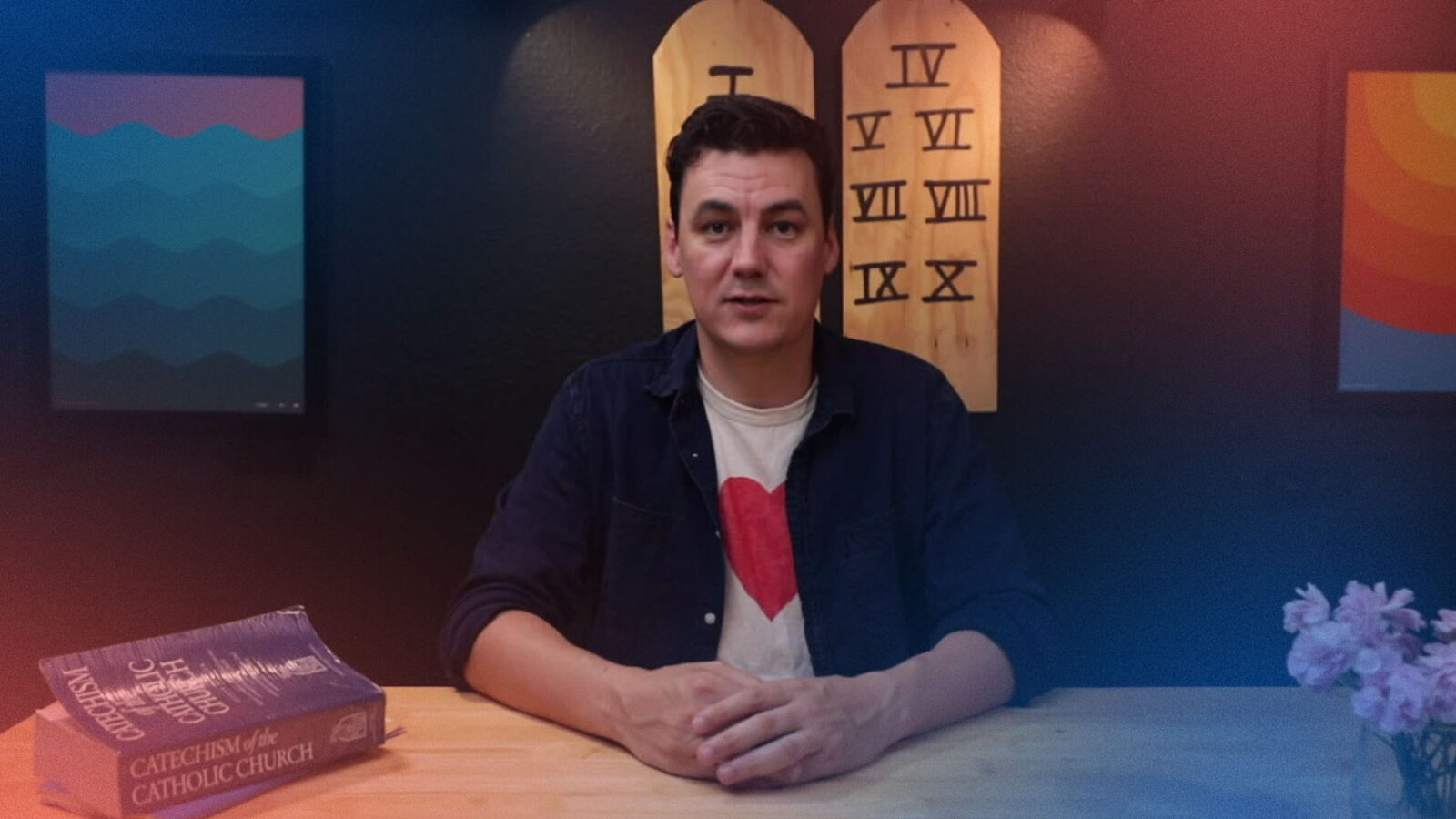Explanation
Human sexuality: a gift from God

Porn not only harms the brain but also damages the essence of human relationships by prioritizing self-gratification over love and commitment.
Explanation

Connection

Podcast

Emily: At the start of the global COVID pandemic, porn sites reported a surge in traffic. Pornhub reported more than a 24% increase in traffic throughout 2020. And another spike occurred at the beginning of the pandemic – an increase in divorce rates. So it’s worth asking: what impact might porn have on relationships? Is it harmful? And to whom?
There does seem to be a trend starting to acknowledge the bad effects of porn on the brain. Popular YouTubers like Andrew Huberman, Chris Williamson, Jordan Peterson, and actor Terry Crews have spoken about the negative effects of porn. There are even Reddit channels with millions of members specifically devoted to trying to cut porn out of their lives.
There is evidence that viewing porn has a negative impact on the brain. We’ll get to that in a moment. But maybe the brain isn’t the right thing to focus on. After all, lots of things are bad for your health. Cigarettes are bad for your lungs. And too much alcohol, sugar, or fast food can harm our bodies. These are all things we might be tempted to indulge in on our own in private. When we decide to indulge in these things in private, we tell ourselves that we’re not hurting anyone else. And we’re willing to take some of the bad consequences in exchange for a quick moment of pleasure.
But cigarettes, alcohol, and fast food becomes a real problem when our indulgence in these things begins to affect our relationships. And this might also be a path for people to find the motivation to stop these bad habits. The problem is not just that smoking cigarettes might lead to our own health problems, the real problem is that deciding to smoke cigarettes today might mean our friends and family won’t have us around as long in the future.
Pornography, however, isn’t just addictive and bad for our health. Porn takes something good—human sexuality—and misuses it in a way that is focused on self-gratification instead of love and commitment. In pornography, all the love, commitment, and relationship that SHOULD accompany sexual activity is stripped away. And what’s left is just the visual stimulus for the viewer to experience sexual pleasure.
Maybe you’ve heard of the reward center of the brain, and a natural substance that works there called “dopamine”. Put simply, our brains adapt to the world around us and are sensitive to stimuli. When we smell food, we might become hungry. When we see someone crying, we might be moved to empathy. But our brain adapts to the level of stimulus it is exposed to. So your brain might freak out the first time you’re in a fight. But a police officer’s brain, which has been trained to respond to violent situations, most likely won’t react in the same way. So the brain adapts to adjust to the level of stimulus it’s being exposed to.
Viewing porn exposes us to the intense audiovisual stimuli we aren’t used to seeing in everyday life. And repeated exposure causes our brains to adjust to this new level of stimulus. It can even lead to addictive behaviors, where we are constantly seeking out this level of stimulus, or more of it, as our brains try to adapt.
But the other effects of porn bring up more questions about sex, relationships, love, and intimacy. Dr. Brené Brown, researcher and author, has said “We are psychologically, emotionally, [and] cognitively… hardwired for connection, love, and belonging. Connection, along with love and belonging… is what gives purpose and meaning to our lives.”
And studies are finding that porn has a negative effect on how we are wired for love and connection. Studies have shown that people who watch porn often experience more negative communication with their partners, feel less dedicated in their relationships, are less sexually satisfied. They’re even more likely to commit infidelity. Partners of people who watch porn report lower self-esteem, worse relationships, and less sexual satisfaction.
One study found that porn watchers are twice as likely to later report divorce or breakup, even after taking into account marital happiness and other factors. Another study even found that all factors considered, porn consumption was the second strongest indicator that a marriage would suffer.
Even partners who both watched porn—even watching it together—had twice the rate of cheating on their partners compared to couples who didn’t watch porn at all.
Pope St. John Paul II once said that the problem with porn is not necessarily that it shows too much, but that it shows too little. What is it that porn is missing? It triggers all the brain’s pleasure and stimulus responses with none of the commitment and intimacy required of real relationship. Surely, this would have an impact on how we show up in our relationships, how we view ourselves and others, and our ability to love others well.
Perhaps the more important questions we should ask ourselves around topics like pornography are questions about relationships, intimacy, and love. If taking sex out of context and viewing it online can negatively impact our relationships, in what other ways might we be misusing our sexuality in ways that could damage others and ourselves?
U.42 — CCC 2807-2815

Ambassadors have shaped history. What do their actions reflect about the authority and responsibility of the leaders they serve?
WatchU.41 — CCC 2759-2806

Family traditions connect us to our roots, uniting us through cherished practices and linking us to a greater story.
WatchU.40 — CCC 2697-2758

In our personal relationships, professional life, or spiritual journey, small but consistent actions can create big, lasting change.
WatchU.39 — CCC 2650-2696

Is any art truly original, or is everything built on the foundation of what came before?
WatchBy submitting this form you consent to receive emails about Real+True and other projects of OSV.